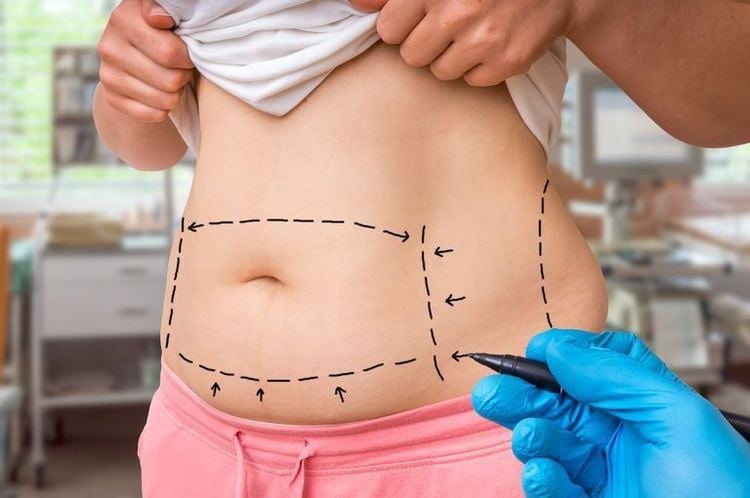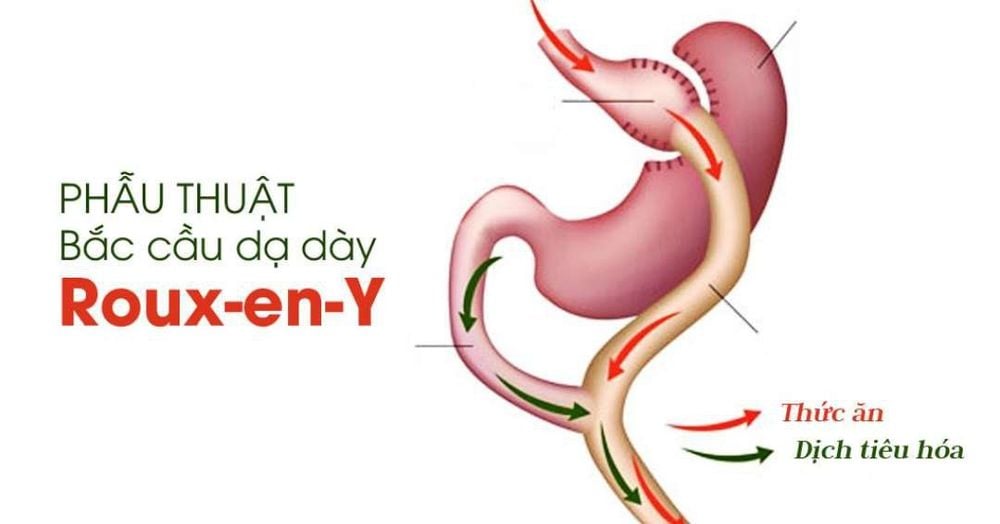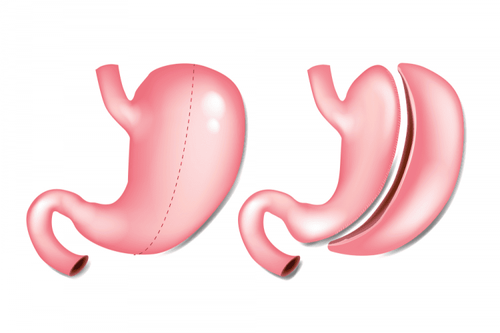This is an automatically translated article.
Weight loss surgery is a method that many women are especially interested in because it can bring back the perfect figure after a short time. The following article will introduce you to some essential information about this type of surgery.
1. What is weight loss surgery?
Bariatric surgery is not just a procedure but includes metabolic and pathological surgeries, including:
Reducing the size of the stomach to limit the amount of food it can hold, As a result, you will consume less food to lose weight. The normal stomach can hold about 3 liters of food. After reducing the size of the stomach, it can be only 30ml and has the ability to dilate 60-90ml. Acts on metabolism to prevent the digestive system from absorbing some of the calories and nutrients in food. Use both methods above. To be eligible for weight loss surgery, you need to have a weight that meets the following criteria:
Body Mass Index (BMI) of 40 or more (over 100 pounds overweight). BMI between 35-40 (about 80 pounds overweight) with diabetes or metabolic syndrome, asthma, heart disease, or obstructive sleep apnea. BMI between 30-35 and having diabetes or a combination of other serious health conditions called metabolic syndrome. When there is a need for surgery, the doctor will carefully examine you to assess whether the patient meets the physical and mental conditions to prepare for surgery, as well as the standard of care. committed to making the big changes needed to lose weight. In addition, you will also be thoroughly advised about the benefits and risks that may be encountered. In particular, your doctor may ask you to do certain things before surgery to make sure the surgery is safe, such as quitting smoking, losing weight, and making sure your blood sugar levels are under control. control.
At the pre-surgery stage, your doctor will advise you on what to do and what not to do to ensure a safe operation. A week before surgery, patients should avoid taking Aspirin or any products containing this ingredient as well as other herbal supplements. Within 24-48 hours before surgery, the patient can only eat and drink liquids as directed by the doctor. The entire surgery will be performed under general anesthesia.

Phẫu thuật giảm cân là phương pháp được một số chị em phụ nữ lựa chọn
2. Weight loss surgical methods
2.1. Gastric ligation This is a type of restrictive weight loss surgery. The doctor will divide the stomach into 2 parts using an inflatable wire to create a small pouch and a large pouch. They are connected by a very small path to slow down the emptying of the upper pocket. That leaves the postoperative patient only able to eat 1/2 to 1 cup of food before feeling too full or uncomfortable. In addition, when eating, it is necessary to chew food thoroughly to ensure that when it is put into the stomach, it must be soft for easy digestion.
This method has advantages over weight loss gastrectomy or other types of surgery. The incision is usually very small, so the recovery time is quick, and the scar can be removed with a gastric compression band.
Patients who undergo this surgery often lose a significant amount of weight compared to other methods. However, they are still able to return to their original weight years later. The most common side effect of gastric bypass surgery is vomiting after eating a lot or eating too quickly. Other complications may include the band slipping out of place, loosening or leaking, so many patients need to have surgery again.
2.2. Sleeveless gastrectomy This is another form of weight loss surgery. The doctor will remove 75% of the stomach, the rest will be connected to the intestines like a sleeve.
This surgery is suitable for people who are excessively overweight or in poor health and other surgeries may be risky. Sleeve gastrectomy offers a greater effect of weight loss and, if necessary, after 12 to 18 months, a second surgery such as gastrectomy can be performed. Because the intestines are not affected, sleeve gastrectomy will not affect the body's ability to absorb, so you still ensure to absorb enough nutrients.
2.3. Roux-en-Y Gastrectomy This surgery combines both restrictive and malabsorption approaches. During the operation, the doctor will divide the upper and lower stomach parts and make a direct connection between the upper part of the stomach and the lower part of the small intestine. The principle of this operation is that the doctor has created a shortcut for food to go directly to the intestine, bypassing part of the stomach and small intestine. When bypassing such a digestive tract, it will help the body absorb fewer calories, helping to lose weight.
The effect of this method appears quickly and clearly. About 50% of people notice weight loss in the first 6 months and the effect continues up to 2 years after activity. Thanks to the weight loss effect, obesity-related diseases such as diabetes, high blood pressure, high cholesterol, arthritis,... are also quickly improved. Some studies have shown that the effectiveness of this method can be stable for up to 10 years.

Cắt dạ dày giảm cân theo phương pháp Roux-en-Y
However, the disadvantage of this method is that the amount of food that the body absorbs is reduced which can lead to the risk of nutrient deficiencies. Lack of iron and calcium can lead to anemia or osteoporosis. Therefore, you need to use the drugs to help supplement nutrients regularly in the following years. In addition, gastric bypass surgery can cause dumping syndrome because food passes from the stomach to the intestines too quickly even though the digestive tract has not been contracted as usual. Most people who lose weight gastrectomy experience this syndrome with symptoms including nausea, bloating, abdominal pain, sweating, weakness, and diarrhea. The timing usually occurs after consuming a diet high in sugar or carbohydrates. Gastric bypass surgery is not the same as gastric bypass surgery.
Roux-en-Y gastric bypass surgery with complicated procedures, so the risk of risks appears more. Possible complications such as infection and blood clots are similar to those of other surgeries. On the other hand, some patients after gastric bypass surgery have a higher risk of hernia and may require further surgery to correct.
2.4. Surgery to block nerve pathways Your doctor will place a device that works like a pacemaker to deliver continuous electrical impulses to the vagus nerve. They will generate signals to signal to the brain that the stomach is full to reduce the patient's appetite. The device will be placed under the rib cage and can be controlled remotely from the outside of the body.
This is the least invasive method of weight loss surgery. The patient will be under general anesthesia for about two hours.
However, if the device runs out of battery, the doctor must reprogram it from scratch and some effects may be encountered such as chest tightness, belching, difficulty swallowing, vomiting, nausea.
3. How is life after weight loss surgery?
After discharge from the hospital, you need to follow a strict diet according to the doctor's instructions. After a few weeks, you can eat solid foods, but you will need to discuss carefully with a dietitian to create a meal plan. Be aware that gastrectomy patients can't eat everything like they used to and need to eat smaller portions and fewer calories, but also need to make sure they're getting enough nutrients. This means using more functional foods.
In some cases, significant weight loss, even up to a pound per day, is possible for the first 3 months. Combined surgery and gastric reduction will lead to more weight loss than restrictive surgeries, so it is difficult for the body to get the nutrients it needs.
Patients with diseases such as high blood pressure, diabetes or other weight-related health problems, after this surgery, the conditions may be in remission or completely. Then discuss with your doctor how to adjust the medications you are taking for those conditions. In addition, losing weight can also help reduce arthritis, joint pain or sleep apnea and make physical activities easier.
Please dial HOTLINE for more information or register for an appointment HERE. Download MyVinmec app to make appointments faster and to manage your bookings easily.
Reference source: webmd.com












